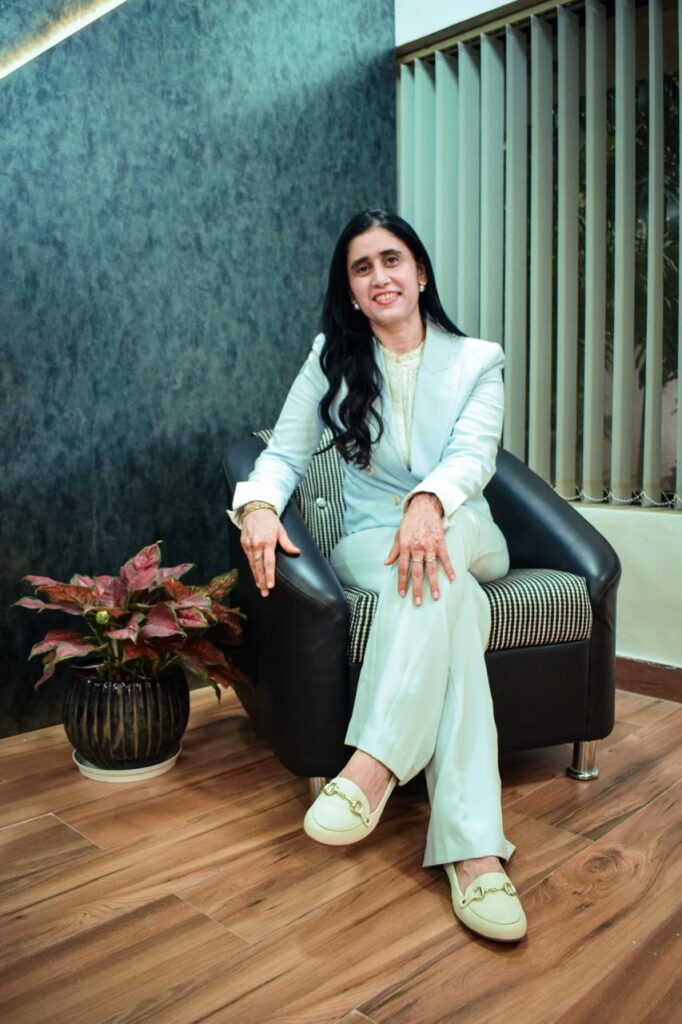From handling cargo to cultivating trust, Paradeep Parivahan Ltd. delivers more than just logistics—it delivers long-term relationships.
Redefining the Landscape of Indian Logistics
In a sector traditionally obsessed with fleet size, shipment speed, and cost efficiency, the Indian logistics industry is witnessing a quiet revolution. Amid complex global trade shifts, rising customer expectations, and unpredictable disruptions, a new kind of leadership is emerging—one that prioritizes relationships over routes, and partnerships over prices.
Mrs. Bushra Khan, Director of Paradeep Parivahan Limited (PPL), is at the forefront of this movement. She brings a bold, people-centric approach to logistics that challenges conventional wisdom. “In logistics, the shortest route is rarely the strongest one,” she says. “It’s the relationships that endure, not just the contracts.”
Why Relationships Matter More Than Ever
In today’s tech-heavy world filled with automated dispatches, real-time GPS, and AI-driven logistics planning, it’s easy to assume that human connection has taken a backseat. However, Bushra Khan and her team at PPL believe otherwise.
“Logistics is not just the movement of goods; it’s the movement of trust,” she says.
When routes get disrupted, when weather intervenes, or when policy shifts without warning, it is trust-based partnerships that keep the supply chain moving—not algorithms.
PPL has built a reputation by cultivating deep and lasting relationships with:
-
Port authorities
-
Fleet operators
-
Customs officers
-
Sourcing partners
-
End customers
These human connections allow for real-time problem solving, flexibility under pressure, and unmatched service reliability.
The Evolving Definition of Reliability
Once upon a time, reliability in logistics meant on-time delivery and minimum breakage. But today, that definition has evolved. According to Mrs. Khan, reliability now includes:
-
Consistent communication
-
Shared accountability
-
Crisis readiness
-
Customer-first culture
At PPL, reliability means calling a client before they ask questions. It means staying ahead of customs changes, rerouting intelligently, and being available—not just 24/7, but proactively.
Turning Clients Into Partners
Mrs. Khan’s vision for Paradeep Parivahan is clear: clients aren’t just clients—they’re long-term collaborators.
Rather than chasing short-term profits, PPL invests in:
-
Frequent in-person visits to client sites
-
Joint planning sessions for seasonal logistics
-
Shared dashboards and transparency tools
-
Quarterly feedback and performance reviews
This approach turns logistics into a co-created experience, where the client’s business is treated with the same urgency and care as PPL’s own.
Building Resilience Through Loyalty
During challenging times, such as port delays, fuel crises, or regulatory bottlenecks, PPL’s client relationships have proven invaluable. Clients who trust the team are more likely to:
-
Be patient during disruptions
-
Collaborate on alternate solutions
-
Continue long-term engagements
This loyalty-driven resilience isn’t built overnight. It’s cultivated through honesty, responsiveness, and consistent delivery of promises.
A Woman Leader Reshaping the Industry
As a woman leading in a male-dominated industry, Bushra Khan brings a fresh, empathetic, and holistic leadership style that stands out.
Her team describes her as:
-
A hands-on mentor
-
A fierce advocate for quality
-
A quiet force of consistency
She’s also focused on empowering the next generation, creating opportunities for women in logistics, and driving a culture of integrity and inclusiveness.
Conclusion: The Future Belongs to the Relationship Builders
In an era where technology can replicate routes but not relationships, companies like Paradeep Parivahan Ltd., under the leadership of Bushra Khan, are proving that trust is still the ultimate differentiator.
As the logistics industry evolves, it won’t be just the fastest or cheapest providers who survive—it will be those who are most trusted.
In the words of Mrs. Khan:
“Routes may change, but relationships endure.”
